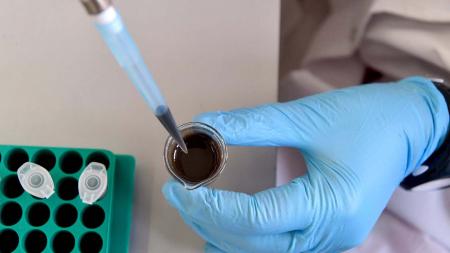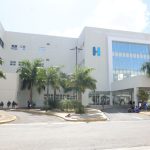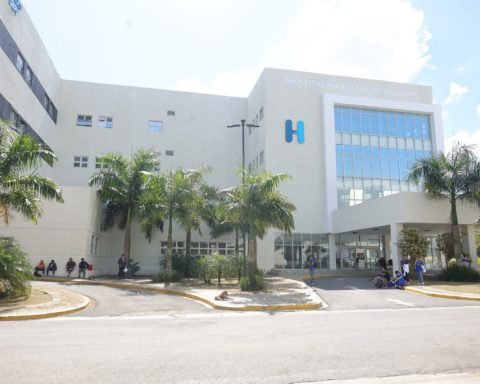The strong growth of technology-based companies (EBT) originating from the National University of La Plata (UNLP) -promoted by members of the academic community of the house of higher studies- reflects the importance of this type of venture, with in products and services with high added value at the local level.
The so-called “university spin-offs” They are companies that emerged in the scientific field that manage to insert themselves in the productive sector and that require technology originated and developed in the field of the faculties themselves.
Some successful cases generated by the impulse of teachers and researchers from the UNLP with a strong dose of innovation and technology They are Gisens Biotech, Bamboo Biotech, Magnolia Bio Tech and Logía Biotech.
In dialogue with Télam, the president of the UNLP, Martín López Armengolrecalled that in 2022 a legal regime was created at the university to regulate and encourage the creation of this type of technology-based companies.
“The spirit was to contain what we saw happening in our centers, laboratories and institutes: the need expressed by many researchers with an entrepreneurial vocation so that the knowledge they generate does not remain in a ‘paper’ and to be able to take a step forward, detaching from the University in the creation of a technology-based company,” said López Armengol.
“The spirit was to contain what we saw happening in our centers, laboratories and institutes”
He maintained that “the University generates knowledge, transmits it and transforms it into products or services with a strong social impact and a great technological and innovation imprint – in tune with the knowledge economy – and that generate qualified employment in pursuit of development with equity “.
So, the faculties receive the proposals from their communities, and a jury evaluates whether the project has the potential to become an EBT.
Then, The initiative is submitted to the UNLP, which provides legal and technical assistance during the incubation period, and subsequently deploys a battery of incentives for its realization.

What are the benefits
The maintenance of the exclusive dedication to researchers to dedicate themselves for three years to the development of the company, the exchange of scholarship holders and the provision of a common work space with equipment, infrastructure and internet stand out.
“This generates a collective work network, a very rich synergy, which is what is seen in all these projects like Silicon Valley,” said López Armengol. and pointed out that “it is a virtuous network, which generates work, social impact, contribution to the knowledge economy and recognizes a place for a generation that is different and has other expectations”.
Gisens Biotech
It is one of the ventures that emerged in the scientific fieldspecializes in the development of biosensing platforms based on nano-biotechnology applied to medicine.
The head of security at Gisens Biotech, Luis Pierpauli, in dialogue with Télam, He said that the company was created in 2019 “with the purpose of generating a change in the diagnostic industry, using technology as an amalgam and with a multidisciplinary team that unites science and business.”
The company’s innovation, he explained, “consists of developing innovative technology to diagnose and monitor diseases in an ultra-precise, fast way, and from wherever the patient is, without the need to go to a laboratory.”
“With a saliva sample, for example, a kidney patient can control his health, in minutes, and without leaving his home. We firmly believe that the next technological revolution will be the one that allows greater access to medical studies, at a lower cost, and remotely,” Pierpauli said.
Pierpauli said that in the UNLP they found “a strategic ally” who accompanied them “throughout the ideation process of the company, fundraising, in the consolidation of intellectual property, and in the links with the academic community for the contracting of technological services and in the incorporation of professionals from the community university”.
Magnolia Nanotech
Another firm born within the university was Magnolia Nanotechcreated in 2020, in the midst of the coronavirus pandemic, from an interdisciplinary collaboration between physicists and biologists from the Faculty of Exact Sciences, which later received the support of the ministries of Health and Production of Buenos Aires, the UNLP and the Conicet .
Sheila Ons and Claudia Rodríguez Torres, representatives of Magnolia Nanotech, told Télam: “We created a product to purify ribonucleic acid (RNA), which can then be implemented in laboratories that diagnose Covid-19. The development consists of manufacturing magnetic beads (sets of nanoparticles), racks with magnets (designed and manufactured with 3D printing), and a protocol for use”.

They affirmed that the initiative “is a contribution to the economic and health sovereignty of the country. It is a fundamental local innovation to achieve a cost-efficient production of key inputs in diagnosis of diseases and research in genetics and molecular biology.”
Ons pointed out that although the development was designed to solve a problem that arose in the pandemic, it can have various uses and be applied “both for the diagnosis of COVID-19 and other diseases that require the separation of nucleic acids for diagnosis. such as dengue, hepatitis, HIV, and all kinds of genetic mutations”.
Bamboo Biotech SAS
Another spin-off is Bamboo Biotech SAS, founded in 2019 by Sebastian Cavalitto and Gastón Ortiz with the purpose of making biotechnological developments to be transferred to other companies. Before the arrival of the pandemic, they developed a serological diagnostic test for Covid (those that determine antibodies in the blood against the disease) with their own financing.
Cavalitto, a CONICET researcher, told Télam: “In 2020 we developed it, validated it and transferred it to the Farmacoop company, which presented it to ANMAT and it was approved in January 2021.”
“The Farmacov IgG/IgM Test was the first national test of its kind. In strip format in a cassette,” he continued, detailing that, in 2021, work was done on a second test for Covid, “this time of the detection type antigen”.

“This development was done with financing from a FONARSEC of the Agency for Scientific and Technological Promotion of the Ministry of Science and Technology. The development is finished and validated. At this moment, we are seeing if it is possible to transfer it to a pharmaceutical company that has an interest in produce it,” Cavalitto completed.
Biotech Lodge
Another company of this type in the process of development is Logia Biotech, by Conicet professor and researcher Guillermo Docena, dedicated to the development of antigen or antibody detection systems for the diagnosis of respiratory diseases in a system called multiplex.
EBTs are a way of transferring knowledge and results from academia to society. Similar experiences are also developed by the Conicet and the Universidad del Litoral and from the UNLP they assure that they will continue working to promote this phenomenon.


















